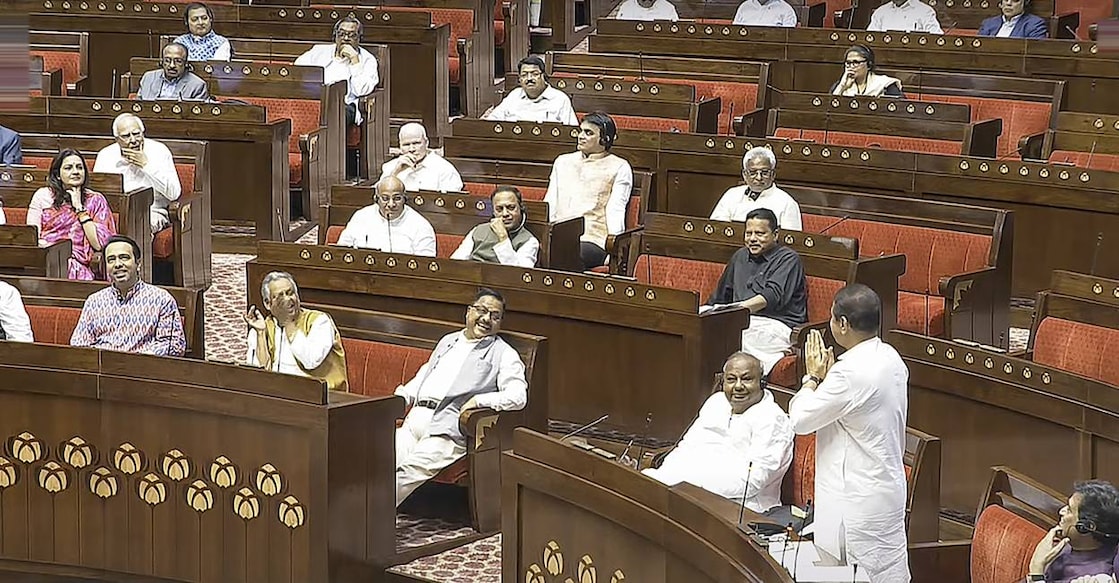Parliament passes Waqf (Amendment) Bill, 288 MPs in Rajya Sabha vote in favour

Mail This Article
New Delhi: The parliament of India has passed the contentious Waqf (Amendment) Bill, 2025, after the Rajya Sabha approved it during a 17-hour sitting on Friday. In the Rajya Sabha, the Bill received 128 votes in favour and 95 against, after all amendments moved by the opposition were rejected. In the Lok Sabha, the Bill was supported by 288 MPs, while 232 voted against it.
The Lok Sabha had approved the Bill on Thursday following a debate that lasted over 12 hours.
Participating in the Rajya Sabha debate, Minority Affairs Minister Kiren Rijiju said the Bill included several amendments based on suggestions from various stakeholders.
“The Waqf Board is a statutory body. All government bodies should be secular,” the minister said, explaining the inclusion of non-Muslims on the board.
He noted, however, that the number of non-Muslim members has been limited to only four out of a total of 22.
Rijiju also alleged that it was the Congress and other opposition parties—not the BJP—that were attempting to instill fear among Muslims regarding the Bill.
“You (opposition) are pushing Muslims out of the mainstream,” he added.
He further stated that for 60 years, the Congress and other parties ruled the country but failed to do much for the Muslim community, which continues to live in poverty.
“Muslims are poor—who is responsible? You (Congress) are. Modi is now leading the government to uplift them,” the minister said.
According to the Waqf (Amendment) Bill, Waqf tribunals will be strengthened, a structured selection process will be implemented, and fixed tenures will be introduced to ensure efficient dispute resolution.
Under the Bill, the mandatory contribution from Waqf institutions to Waqf boards will be reduced from 7% to 5%. Institutions earning over ₹1 lakh annually will be subject to audits by state-appointed auditors.
A centralised portal will automate Waqf property management, enhancing efficiency and transparency.
The Bill proposes that practising Muslims (for at least five years) may dedicate property to the Waqf, thereby restoring the pre-2013 rules. It also stipulates that women must receive their inheritance before a Waqf declaration is made, with special provisions for widows, divorced women, and orphans.
Additionally, the Bill proposes that an officer above the rank of Collector investigate government properties claimed as Waqf. It further recommends the inclusion of non-Muslim members in both central and state Waqf boards to promote inclusivity.

